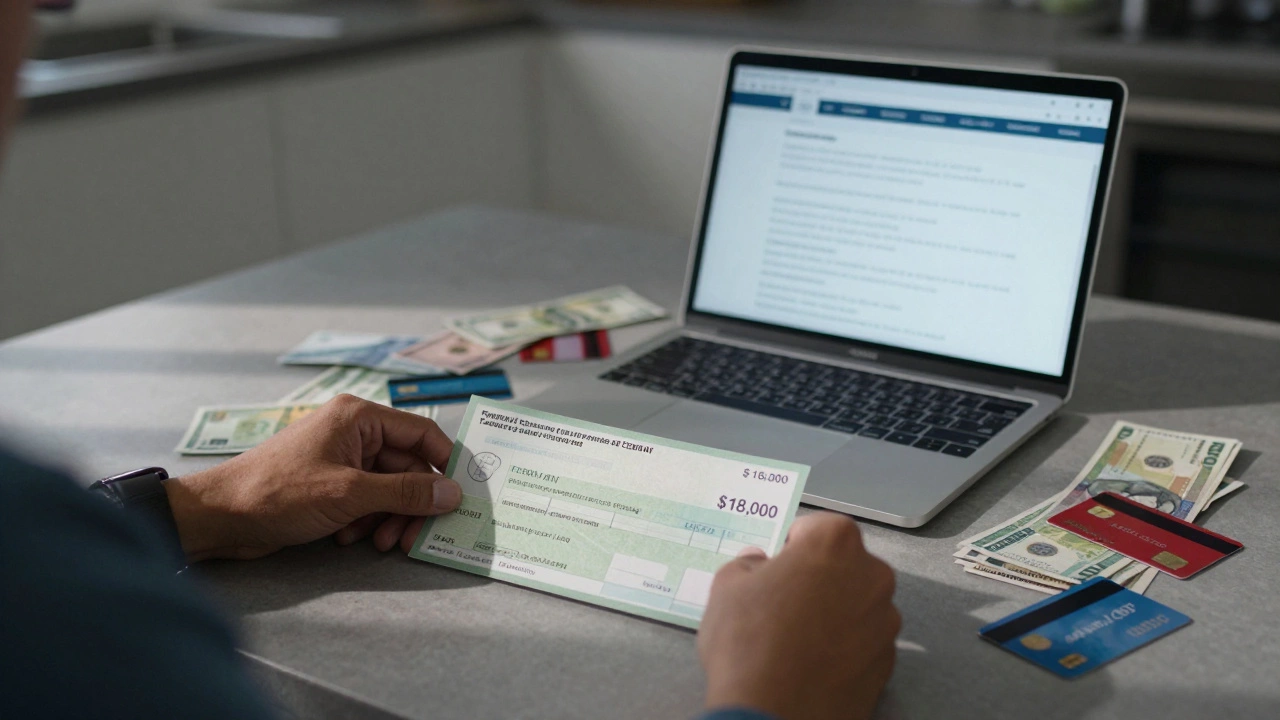Loan Approval: How to Get Your Loan Accepted Quickly
Want a loan but not sure why the bank says no? Most lenders follow a short checklist. If you know what they care about, you can tweak your application and walk out with a ‘yes’.
What Lenders Check Before Saying Yes
First up, your credit score. It’s the fastest way for a bank to gauge risk. Scores above 680 usually get a green light, while anything lower means higher interest or a rejection. But it’s not the only factor.
Next, your income and employment history. Lenders want to see steady earnings that can cover the monthly payment. A recent pay slip, a tax return or a contract can prove you’re reliable. They’ll also look at your debt‑to‑income ratio (DTI). If you owe too much compared to what you earn, the bank may fear you’ll default.
Third, the purpose of the loan matters. Buying a home, a car or funding a business each carries different risk levels. Clear, realistic use of funds helps the lender see you’ll repay on time.
Simple Steps to Improve Your Approval Odds
Start by checking your credit report. Spot any errors – a wrong missed payment can knock points off. Dispute wrong entries and pay off any lingering small debts.
Save a few months’ worth of payslips or bank statements before you apply. Having the documents ready shows you’re organized and reduces back‑and‑forth with the lender.
Don’t mention anything that could raise red flags. Phrases like “I need the money fast” or “I’m not sure if I can pay it back” can kill the application before it’s even reviewed. Focus on stability and a solid repayment plan.
If your credit score is lower than you’d like, consider a small credit‑builder loan or a secured credit card. Pay it on time for six months and watch the score climb.
Lastly, shop around. Different banks have slightly different thresholds. A credit‑union might approve a borrower that a high‑street bank turned away. Compare rates, fees, and the required credit score before you decide where to apply.
Following these basics puts you in the driver’s seat. You’ll know exactly what lenders need, avoid common pitfalls, and boost your chances of hearing that satisfying ‘approved’ message. Ready to start? Grab your latest payslips, pull your credit report, and give that loan application a fresh look. Good luck!
Will Credit Score Affect Remortgage? What You Need to Know in 2026

Your credit score plays a major role in remortgaging. A low score can mean higher interest rates, fewer lender options, and thousands in extra costs. Learn how to improve it and secure better deals in 2026.
Read More >>Do Consolidation Loans Hurt Your Credit? Here’s What Actually Happens

Consolidation loans can temporarily lower your credit score, but if you make on-time payments and avoid new debt, they can help rebuild it over time. Here's what really happens to your credit.
Read More >>Upstart Personal Loans: Reliability Review 2025

Explore Upstart's reliability, approval rates, APRs, funding speed, and how it compares to LendingClub and Prosper for personal loans in 2025.
Read More >>Are Personal Loans Hard to Get? What Really Matters in 2025

Wondering if personal loans are tough to qualify for? It usually depends on a few key things like your credit score, income, and current debts. This article breaks down what lenders actually look at in 2025 and how you can boost your odds of getting approved. I'll share some common roadblocks and practical ways to work around them. You'll get the facts, plus tips to avoid wasting time on the wrong applications.
Read More >>Is Getting Approved for Debt Consolidation Really That Tough?

Debt consolidation can be a smart move for reducing financial stress, but getting approved isn't always a piece of cake. Your credit score, debt-to-income ratio, and even the specifics of your finances play crucial roles. This guide covers the ins and outs of what lenders look for and provides tips to boost your chances of approval. Find out how to better prepare and navigate this process for a successful outcome.
Read More >>